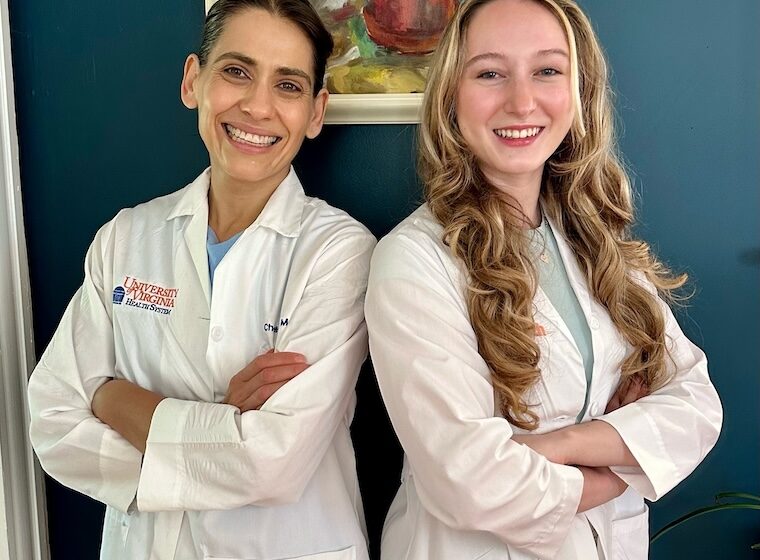Some amazing work by an undergraduate student here at UVA could open the door to new ways to treat recurrent Crohn's disease in children.
Crohn’s is a debilitating, and potentially even life-threatening, inflammation of the digestive tract that affects tens of thousands of children across the United States. It can be hugely disruptive -- many of these kids struggle to go to school as they face repeated flare-ups, and they can suffer lifelong effects such as stunted growth. They may even need to have portions of their bowels removed.
Working in the lab of our Chelsea Marie, PhD, undergraduate Rebecca Pierce appears to have found answers for why children with relapsing Crohn’s endure repeated bouts even after intiially recovering. Her work suggests that kids with relapsing Crohn’s have a persistent disruption of their microbiomes – the collection of microorganisms that lives in our guts. That suggests that doctors could target this disruption to get at the underlying cause of the relapses. They might do that, for example, by using fecal transplants or by giving the children tailored cocktails of healthy microbes to balance out their microbiomes.
“Even in our cohort of pediatric Crohn’s patients in remission, we detected persistent microbial imbalances and subtle inflammatory changes,” Pierce noted. “Current therapeutics have focused on treating clinical symptoms which can leave patients vulnerable to relapse. Our work suggests that incorporating therapies that target the root causes of dysbiosis could lead to improved treatments with fewer relapses.”
While Piece did this work as an undergrad, she's now in medical school at Georgetown University. What a promising start to a medical career.
